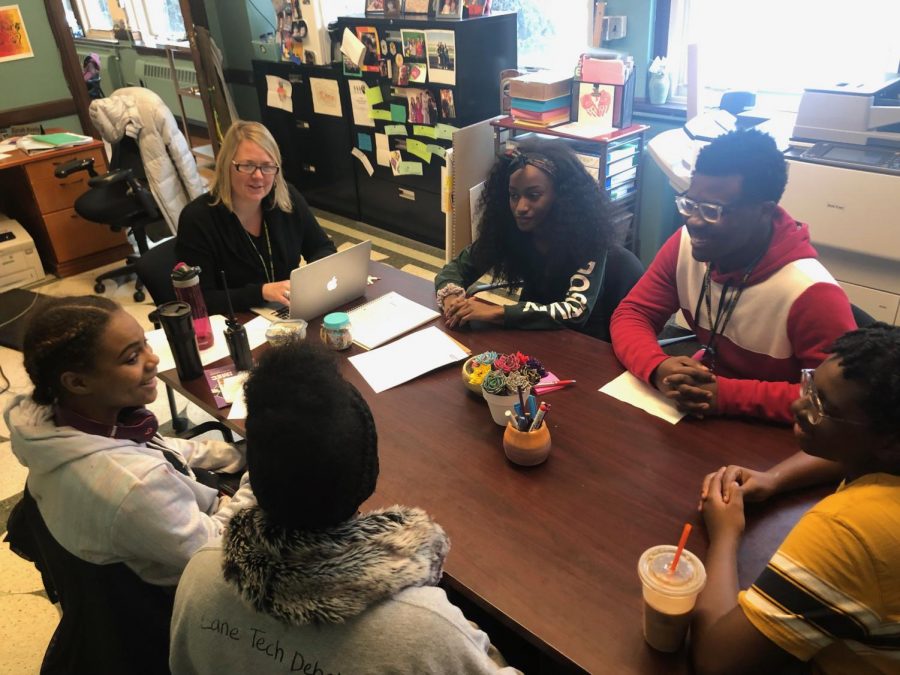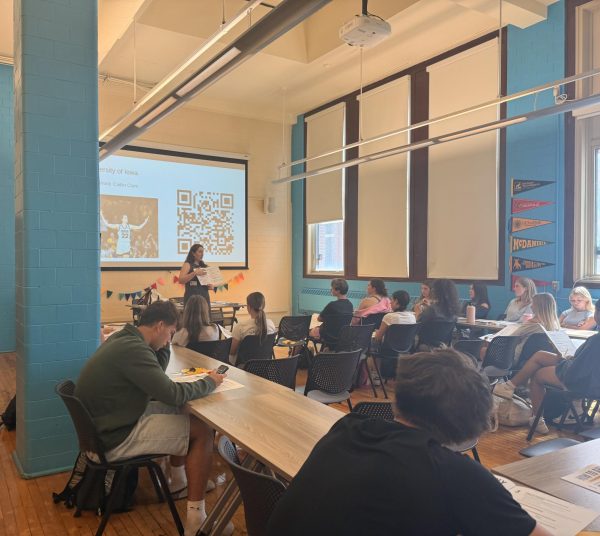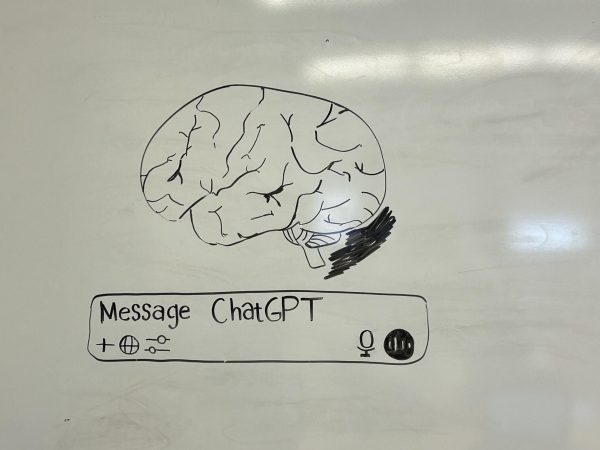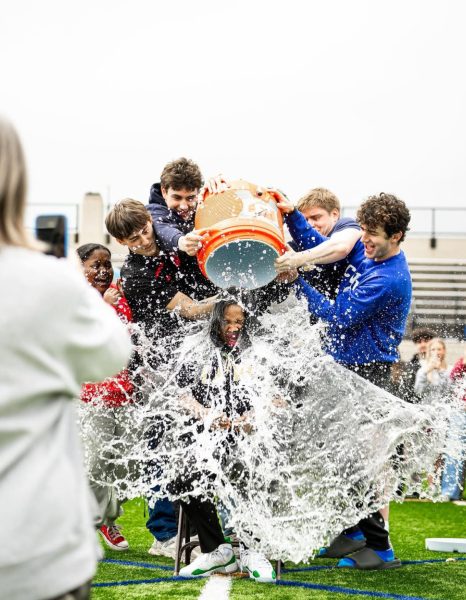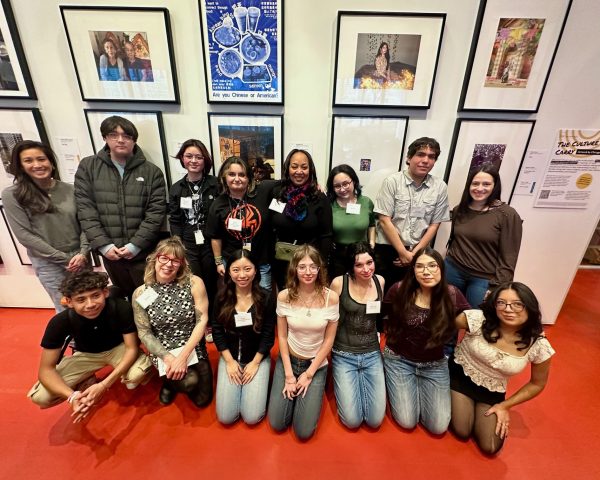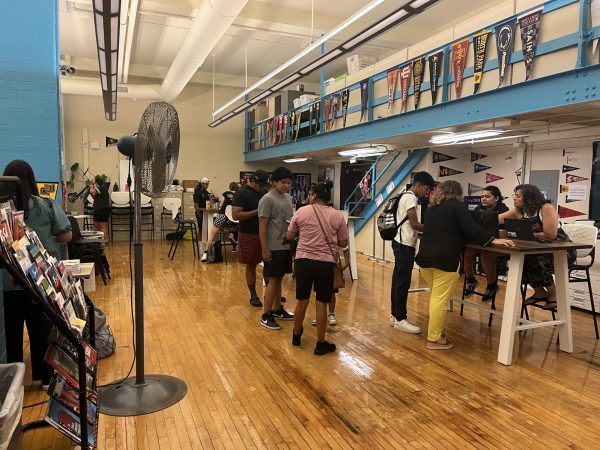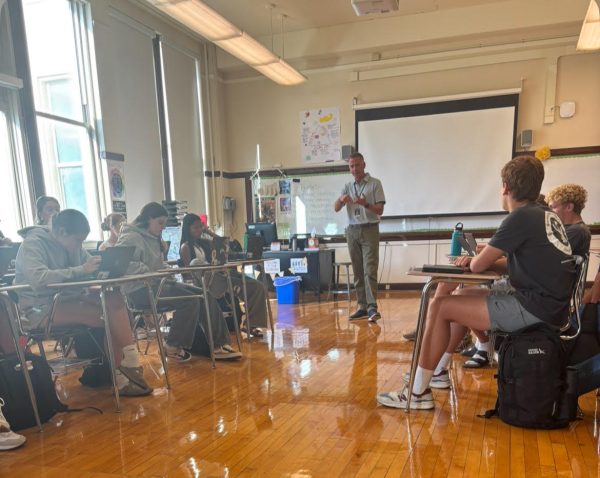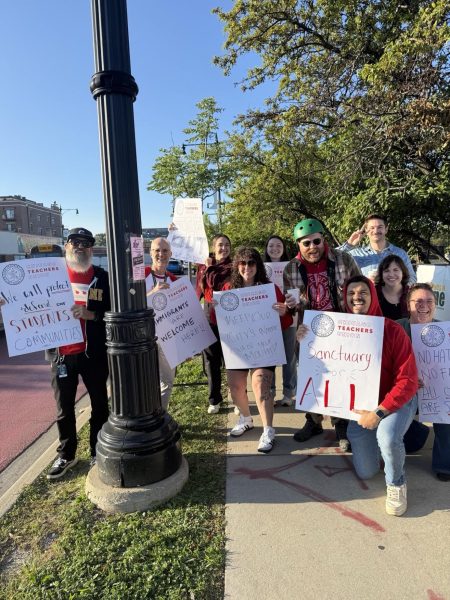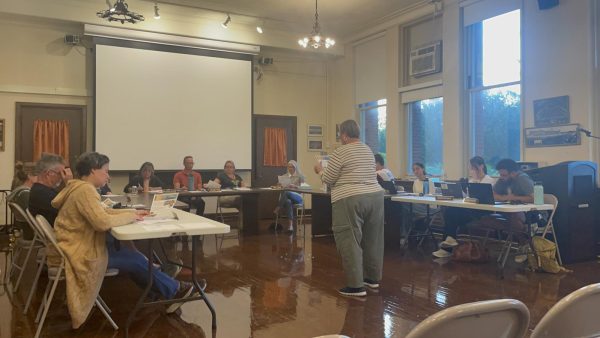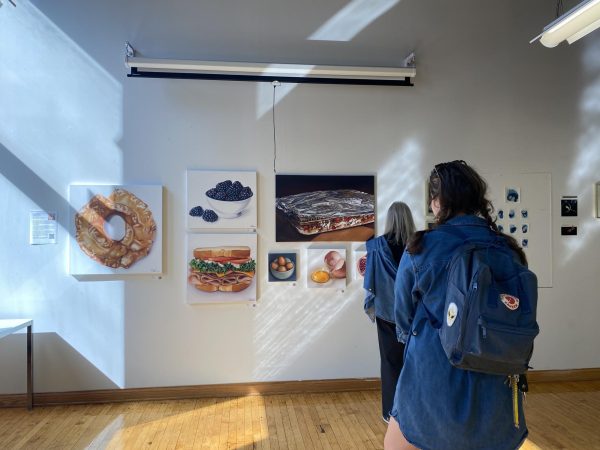Students address concerns through focus groups
Jayden Kuykendahl (center) and Deanna James (participating in the African American focus group along with five other students
Senior Deanna James decided to take part in the focus group discussions in hopes of helping underclassmen by sharing her experiences.
“I feel like I experienced a lot at Lane in general, so there’s a lot of things that I would want to change for the students who are going to go to Lane even though I won’t be here for it,” said James, Div. 975.
James has participated in two focus groups: one centered around Lane students in general and the other centered around black students.
One of the many topics discussed in her sessions was the treatment of students by their teachers, as well as the concept of microaggressions.
“You can tell when a teacher is just there to do their job, and when a teacher wants you to do well in that class,” said James. “They also care about how you’re doing as a person when they’re treating you more like a human than just a student.”
This is all too familiar to James because of a recent experience in which one of her teachers told her that she felt that she was spending “too much time” helping James learn the material.
“I was going to her because I needed help and I didn’t have the experience that everyone else in the class had,” said James. “For her to say that, well not only is this your job, but you should want to help people.”
Ms. Escobar, the Director of Culture and Climate, first introduced focus groups to Lane to address these situations and give students a space to talk about their experiences.
Focus groups are a form of qualitative research often used by companies for marketing purposes, according to ThoughtCo.com. In this case, focus groups were brought in for sociological research in regards to Lane’s climate, an idea Escobar got from her past experience as working in a market research facility.
“I just remember the power and the impact of having people in a group,” Escobar said. “I was like, well why don’t we just do that? Why don’t we bring kids together and why don’t we ask questions?”
During the session, there are four topics that participants can discuss: safety, teaching and learning, interpersonal relationships and institutional environment.
“It was about a year and a half ago where we really wanted to take note of what was happening in the school, in particular, in the classrooms and where students felt like they needed support,” Escobar said. “That was really the first time that certain things started to come to light, like for example, topics like race, immigration and loss of life to violence.”
Each session usually lasts one class period and students can participate by signing up via the student news email.
Maxwell Ryan, Div. 077, attended the very first round of general focus groups this year.
“I thought that it was kind of interesting, just kind of being able to give back feedback and responses,” said Ryan. “They always send out the surveys and those only do so much, so actually being able to talk to an administrator is pretty cool.”
Even though the focus groups stress the cultural aspect of the discussions, general student safety is also a major priority.
“One of the major things that stuck out to me was the questions pertaining to safety and where in and around Lane you felt safe,” Ryan said. “You know, where in the building do you not feel safe, where on campus either outside or in some of the restaurants do you feel less than safe? I thought that was kind of interesting.”
So far, Lane has held two focus group sessions this year: one representing the entire student body and one that focuses primarily on African American students.
According to Escobar, she and Hanly decided to focus on African American students because of the alarming statistics that they found concerning them.
“Ms. Hanly, for example, is talking about the number of African American students that we have in classrooms and how many are actually graduating,” Ms. Escobar said. “Those are numbers where we had the test scores and it was really the eye opener for us.”
It was found that out of the entire senior class, there are only twenty-eight African American males.
“Just hearing that twenty percent of Lane Tech was black maybe eight to ten years ago whereas opposed to now, where we make up eight to seven percent nowadays is really hurting to hear,” said Student Council President Jaden Kuykendahl, Div. 957. “I know that then, we had a larger community and we had more opportunities because of how big our community was.”
Kuykendahl decided to participate in the African American focus group because of how he is treated in and around the school.
“I go through a lot at this school, especially being the student council president,” Kuykendahl said. “I get a lot of different perspectives on the way that people treat me within the school walls and I thought that it was important that I say something because most of the time I don’t say anything.”
According to Escobar, the major goal for these focus groups is to get to the root of the problem by figuring out what is causing black students to fall behind, as well as eliminate racial tensions.
“Right now, the biggest thing that we keep hearing is, and with every group that we have, is the N-word,” Escobar said. “Our kids are not feeling heard, protected or defended.”
Auyanah Bingham-Cole, Div. 081, joined the African American focus group because of her interest in racial injustice and other social justice problems regarding black people.
“The use of the N-word here at Lane is a really big problem that I’ve witnessed in my freshman year,” said Bingham-Cole. “It boils my blood when I hear Hispanics, white people or whoever say it because it’s not cute. I don’t say it and I don’t like it when other black people say it because it’s just filled with ignorance and it’s so disrespectful to your own people.”
Other than the persistent use of the N-word around the school, there are other instances that bother Bingham-Cole, like the controversy surrounding the national anthem and the black national anthem.
In early February, a student criticized Lane on social media for playing the black national anthem “Lift Ev’ry Voice and Sing” before first period.
This criticism came after the school announced earlier in the year that they would no longer play the National Anthem after sending out a survey in which the majority of students voted to stop playing it.
“It’s crazy how they complain that we’re kneeling but we’re doing so in peaceful protest,” Bingham-Cole said. “Would you rather me start screaming during the song? What would you want me to do? Because right now I’m just sitting in my seat and you still have a problem with it.”
The implementation of these focus groups has given hope to students like Kuykendahl that things will start to change in the near future.
“We need to start having these conversations, especially with administrators so that they understand where we’re coming from,” Kuykendahl said. “Or at least they can begin to understand where we’re coming from and start doing things to help the environment to become better for black students.”
Your donations directly fund the Lane Tech student journalism program—covering essential costs like website hosting and technology not supported by our school or district. Your generosity empowers our student reporters to investigate, write, and publish impactful stories that matter to our school community.
This website is more than a publishing platform—it's an archive, a research tool, and a source of truth. Every dollar helps us preserve and grow this resource so future students can learn from and build on the work being done today.
Thank you for supporting the next generation of journalists at Lane Tech College Prep!
Leda Edwards is currently a Senior here at Lane tech. As a member of the OMEGA Historia concentration, she enjoys indulging in creative writing like...

